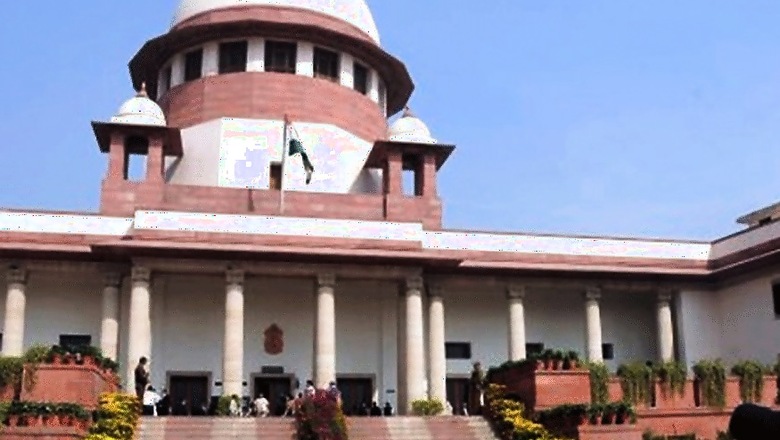
views
New Delhi: Cutting off waiting period for divorce by six months under the Hindu Marriage Act, the Supreme Court on Tuesday ruled that divorce can be granted without the mandatory 18-month period of separation between the couple.
Interpreting the provisions of the Hindu Marriage Act, a bench of Justices Adarsh K Goel and Uday U Lalit said that the six month "cooling off" period can be waived off by the courts in cases of divorce through mutual consent.
Section 13B, inserted in the Hindu Marriage Act in 1976 to introduce divorce through mutual consent, provides for a total 18 months before a decree for divorce can be passed.
Under Section 13B(1), a divorce petition can be moved by a couple following a judicial separation of one year. This must be followed by another six months of waiting period under Section 13B(2) for getting a decree.
The top court, however, held that Section 13B(2) is not mandatory but directory in nature in view of the legislative intent and the objective of the provision.
The bench underlined that Section 13B was enacted to enable the parties to dissolve a marriage by consent if the marriage has irretrievably broken down, and hence forcible perpetuation of status of matrimony between unwilling partners would not serve any purpose.
It said that the object of the cooling off period was to safeguard against a hurried decision if there was otherwise possibility of differences being reconciled.
"The object was not to perpetuate a purposeless marriage or to prolong the agony of the parties when there was no chance of reconciliation," noted the bench.
The Court acknowledged that every effort has to be made to save a marriage but pointed out that "if there are no chances of reunion and there are chances of fresh rehabilitation, the Court should not be powerless in enabling the parties to have a better option."
It maintained that courts can grant divorce after waiving of six months' waiting period on being satisfied that the "waiting period will only prolong their agony" and that all efforts of conciliation have been futile. The courts, waiving of the cooling off period will also consider whether the estranged couple has settled all differences relating to alimony, custody of children etc.
"Since we are of the view that the period mentioned in Section 13B(2) is not mandatory but directory, it will be open to the Court to exercise its discretion in the facts and circumstances of each case where there is no possibility of parties resuming cohabitation and there are chances of alternative rehabilitation," it held.
The Court also put on record its appreciation for assistance rendered by senior advocate KV Vishwanathan, who acted as amicus curiae in the matter and supported the view that six months can be waived off in certain situations.













Comments
0 comment